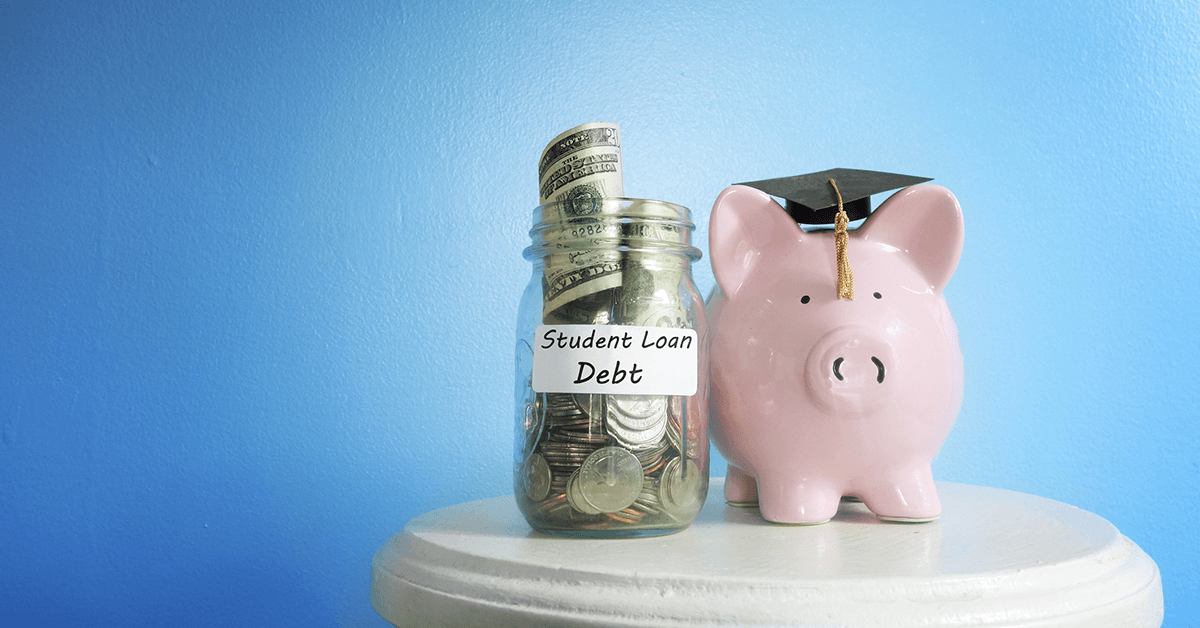
High Student Loan Debt Restricting First-Time Homebuyers
After years of paying rent, the dream of homeownership will not only start to become increasingly appealing but begin to actually seem approachable at a certain age. As income becomes more consistent, credit scores improve and a specific lifestyle becomes predominant, you may become ready for this step sooner than you originally thought. There is, however, one large issue which can prevent homeownership from becoming a reality for millions of people: high student debt.
When you’re overwhelmed with student debt, it may seem like homeownership is unattainable, but that is far from the truth. While high student loan debt will impact your mortgage approvals, there are dozens of ways to plan accordingly and improve your odds of getting approved for loans. With attentive planning, the right resources, and a deep breath, your dreams of homeownership will transform from fantasy to reality.
There is a reason that first-time homebuyers account for a smaller percentage of the housing market, and that reason is daunting student loan obligations. There are more than 44 million borrowers who collectively owe $1.5 trillion in student loan debt, and that’s only in the United States. According to personal finance website Make Lemonade, 2019 statistics show “The average student in the Class of 2017 has about $40,000 in student loan debt, compared with $37,172 in student loan debt for the Class of 2016.” This statistic has increased drastically from college seniors in 2009 who graduated with an average of $24,000 in student loan debt. Despite these steep numbers, millennials have still been the largest group of home buyers since 2013 at 36%, and 65% of these buyers were also first-time homebuyers.
J.R. Duren, a personal finance expert, has one of these victory stories to share. With over $100,000 in debt, he and his wife were still able to purchase a home. Duren explains how an income-based replayment plan helped him pay off his combined loan burden. Another fellow victim to student loan debt, Dr. Goldie Winge, shares, “last year, I bought the house of my dreams despite having a medical school debt of over $120,000.” She was able to do so by keeping her credit excellent and having good financial reserves.
These numbers may seem alarming at first, but it’s the next step you take that determines whether your dream house will become your new home, or someone else’s. When applying for a mortgage, there are three central factors to focus on — your down payment, your credit score, and your debt-to-income ratio.

The amount of money you’re able to put down on a home will directly determine which mortgages you are eligible for. It’s a universally known challenge to bulk up your savings when you’re busy picking away at your debt, especially hefty student debt. If the amount you’re able to use for a down payment is a bit shy of your goal, there are plenty of down-payment assistance programs to help you. Sonyma, State of NY Mortgage Agency, for example, offers a program called Achieving the Dream which provides low down payment mortgage financing for qualified low income first time homebuyers in New York on 1-4 family residences. The DC Housing Finance Agency, DCHFA, also has a similar program named DC Open Doors which offers competitive interest rates and lower mortgage insurance costs on first trust mortgages, as well as fully forgivable second trust loans, whether you’re buying your first or fifth home.
These competitive rates can result in a 0% down payment loan for homes in the District of Columbia. Randall Yates, founder and CEO of The Lenders Network recommends another great resource; the HUD website, in which you can browse homebuyer programs by state. Alternatively, there are federal loan programs such as an FHA loan, which is a friendly option even if you have student loans and could allow you to make a down payment as low as 3.5%. Be sure to take your time researching your array of options and you’ll be surprised at how much lower your down payment can be.

Your credit score is one of the first things financial institutions will take into account when deciding whether to approve your mortgage. You may be thinking uh oh…I haven’t checked my credit score in a while, or even wondering what is a credit score? Many are under the impression that if you have student loan debt, your credit score will suffer. This is fortunately not the case, and in fact, quite the contrary. Melinda Opperman, an expert with over 19 years of experience in the financial industry explains, “When managed properly, student loans can be advantageous in helping to build your credit history.” Using a variety of credit methods, such as credit cards, car payments, and even student loans, shows lenders that you are capable of handling different types of debt. As long as you’re not missing any payments, your credit score should stay rather stable. What you can do is focus on boosting your credit score. A few ways to do this are by simply paying your bills in full before or on the due date and managing your credit use, in other words try to use as little of your available credit as possible. Keep a close eye on your credit score in anticipation of the home buying process to ensure your score is optimized and up-to-date.
Lenders will also take a look at your DTI (debt-to-income) ratio, which shows the percentage of your monthly income required for debt repayment. Unfortunately, your student loan payments fall under your monthly debt umbrella. The good news is that you can successfully manage your DTI with some planning and strategy. As soon as you begin to repay your existing debt, whether it be a small amount or a large amount, your debt-to-income ratio will lower and you will potentially receive a better interest rate. If you’re having trouble making your monthly payments, consider refinancing your student loans. This will lower your interest rate and demonstrate to lenders that you’re well on your way to pay off your discouraging debt.
Many dive into the house hunting process prior to getting a mortgage, and then become disappointed when they aren’t approved by a lender and miss out on the perfect home. By getting pre-approved, you will know exactly how much you can afford and avoid setbacks. Getting pre-approved for a mortgage involves a lender evaluating your financial history and then putting together a letter illustrating how much of a loan you can qualify for. This shows your seriousness and motivation as a buyer, which bumps you ahead of other interested parties without this advantage. There are dozens of costs, some hidden, when it comes to purchasing a home and getting pre-approved from a lender will assist you in preparing for the cost requirements.
The American dream of homeownership isn’t impossible. It’s actually quite attainable with the right knowledge and careful planning. Don’t allow your student debt to slow you down and keep you from your lifelong aspiration of having a home to call your own.
Be an Informed Homebuyer
Stay informed! Get updates that include informative videos, real estate-related articles and infographics.





